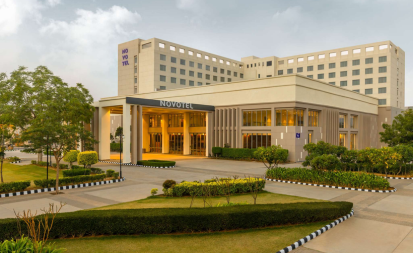Nurturing millennial leaders of tomorrow
Article By Urvi Aradhya, CHRO, K Raheja Group We are witnessing a dramatic shift in executive leadership. Millennials are filling the void left by baby boomers and a part of gen-xers retiring. As they take

Article By Urvi Aradhya, CHRO, K Raheja Group
We are witnessing a dramatic shift in executive leadership. Millennials are filling the void left by baby boomers and a part of gen-xers retiring. As they take over, they are also bringing with them a fresh perspective on business leadership.
Milennials are poised to make for 75% of the Indian workforce by 2025, estimates a study conducted by organizational development and learning partners Amdocs India. As a result, this generation inevitably holds in its hands the reins of India’s economic destiny, and how well we harness the potential of millennial leaders will determine the pace of our economic growth.
Numerous studies point that millennial want to make an impact along with creating positive and lasting change. Unlike previous generations, millennials are transitioning to leadership roles at a time of unprecedented disruption and volatility. The qualities they require, to navigate the vicissitudes of an increasingly unpredictable world, are different to anything faced by preceding generations. And they are looking at their employers to equip them with the skills they need.
Research by Deloitte found that 78% of millennials want to work for companies that are innovative. At the same time about two-thirds of them feel their organisations could do more to nurture the leaders of tomorrow. A quarter, meanwhile, are actively asking for ways to demonstrate their leadership skills. Organisations must therefore step up. They need to look at skilling their employees of today, who will be the leaders of tomorrow, as an investment in long-term business growth.
Transparent policies, clear performance benchmarks and all-inclusive training and development programmes are indispensable to survival in today’s and – more crucially – tomorrow’s world. The mode of training also needs to resonate with the millennials. A technology-enabled generation, micro-learning modules that can be consumed on-the-go, as well as gamification, are emerging as increasingly popular training techniques.
Speaking specifically about the hospitality industry, we have witnessed a massive acceleration in digitisation. The shift was already taking place but gathered momentum amid the COVID-19 pandemic. It has touched everything from the booking process to the overall customer experience, which has become contactless, automated, and, with the incorporation of elements like Virtual and Augmented Reality, more immersive than ever before.
This is just an example of the magnitude of change our millennial leaders will need to navigate. As a result, they require to be trained to not just understand technology, but also adapt to innovate ways in order to gain an edge over competition, especially in an industry that is all about the customer experience. They need to be honed not just as leaders, rather pioneers and disruptors themselves.
Next-gen millennial leaders in the hospitality sector must be equipped with the knowledge of how to best utilize and adapt technology in innovative ways when serving their new and returning clients and customers. Training people in new technologies will increase productivity, increase employee efficiency, and make them and the company more competitive.
Millennials will face the greatest leadership challenges of any generation that has been so far. But those challenges have also made them the most dynamic generation to have taken the reins of business. Harnessing this dynamism will help businesses turn these challenges into opportunities, ones that will secure their long-term future.
—–
 English
English French
French German
German Italian
Italian




